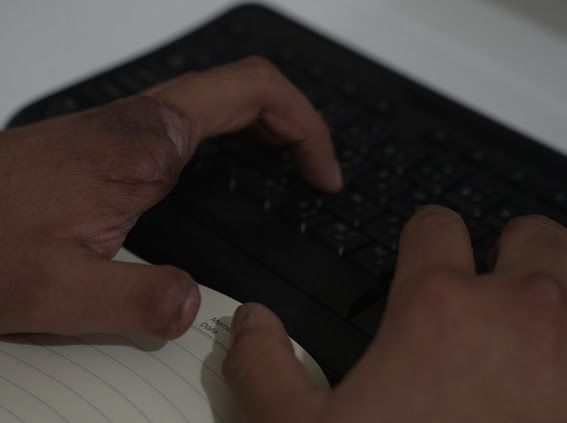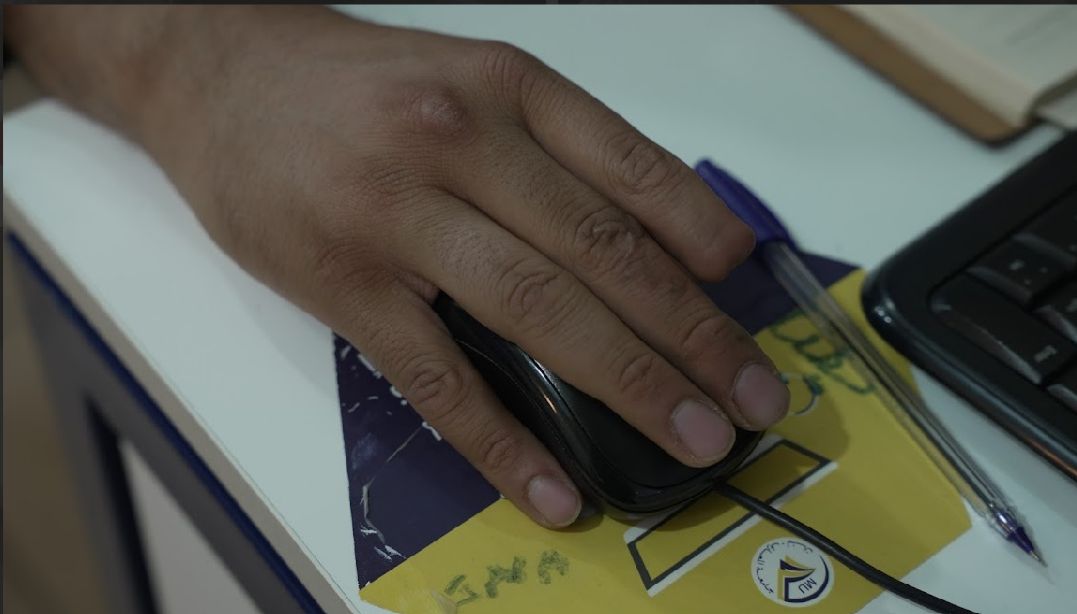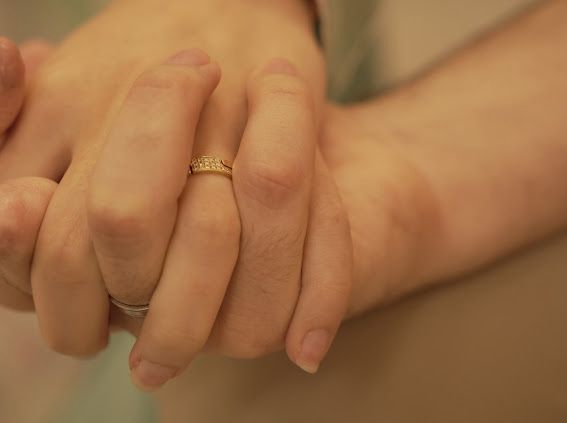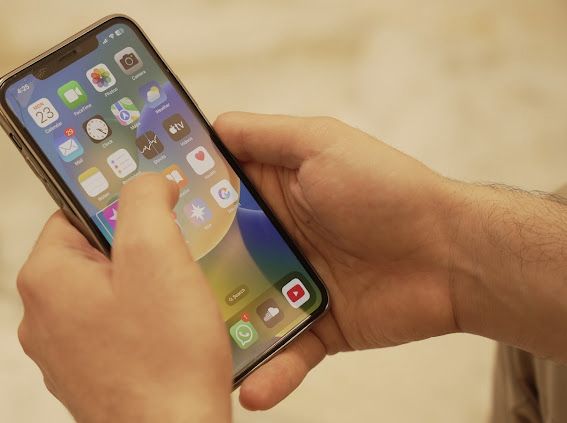Hadi sits before us, a young man in his twenties who once stood between life and death.
He lost his right eye, his other eye was damaged, and some of his fingers were amputated—yet he never stopped.
Hadi didn’t cry, didn’t collapse, and didn’t shut the door on life; instead, he opened it wide.
He graduated from his university with a high GPA despite the pain, despite the blurred vision, despite the papers that became hard to organize.
He considered it a recovery period—a warrior’s rest…
“We rested, managed on our own, finished our surgeries, completed the necessary treatments.
We are capable of giving just like before, and maybe even more motivated now to give.
We have two missions:
the natural duty, and revenge for ourselves.”

This is how Hadi views his injury—
how he turns his wound into a stronger drive for revenge.
That’s who they are…
They see victory in the wound, and life in martyrdom.
Hadi continued his studies at Al-Ma'arif University—Faculty of Managementwith great support from his professors and peers,
who never saw his injury as a barrier, but as a sign of strength and determination.
They would read for him when his eye grew tired,
accompany him in his university projects,
and encourage him at every exam—making success a shared achievement between him and them.
Here lies the importance of the community surrounding the resistance wounded:
Support is not just about feelings, but about action—
creating an understanding educational environment,
empowering them to continue their daily lives without discrimination or pity,
and involving them naturally and respectfully in activities and institutions.

Hadi did not rise alone.
He rose because there were those who believed in him.
Just as the wounded need medicine for their body,
they need a community that trusts their mind, supports their spirit, and sees them as capable of living and contributing.
That is why the responsibility of society is no less important than the sacrifices of the wounded themselves.
If they have given their bodies, we are called upon to give them respect, opportunities, and appreciation.
“When my children see their mother wounded because of this enemy,
they will carry love for the resistance, and love for revenge.”
Zainab does not see her injury as a barrier to building a family;
instead, she views it as a powerful motivation to raise her children with this mindset—
preparing them for revenge and making them aware of the cruelty of their enemy.
In one of the greatest humanitarian crimes,
while she was in the place she was supposed to feel safe,
the enemy took her eyes—but failed to take her will.
With the support and love of her husband,
Zainab prepares to build a family and embrace motherhood naturally,
supported by her family… and with a faith that she sees with her heart
more deeply than others see with their eyes.
Just one week before his wedding, Shadi was putting the final touches on his marital home with his fiancée.
The paint was finished, the furniture was in place,
and their hearts were ready for a warm married life—
but then the Bayjer explosion came suddenly…
and took so much from his body.
Shadi was severely injured—he lost both eyes, and his fingers were amputated.
The moment of joy was replaced by an intensive care room.
When he woke up, his first request was to hear his fiancée’s voice.
As soon as he heard her, he was reassured that she was okay—that was all that mattered to him.
They got married, and love took residence in a home where a dream had once been born—and nearly buried.

Today, Shadi is pursuing his master's degree in programming.
His professors didn’t see his injury as a weakness; instead, they saw an exceptional student who deserves a full opportunity.
He sits behind the computer screen, using a program that allows him to work through hearing and speech.
He codes, succeeds, and paves the way to building a family.
Shadi and his wife’s story is not just about love
it’s about a sacred human alliance
against helplessness, fear, and pain.
 Interview With Shadi
Interview With Shadi